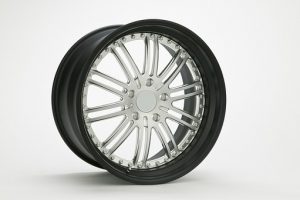 New tires typically aren’t cheap no matter what size tire or what type of vehicle you have. There are lots of ways to care for your tire investment and prevent flats, or worse, the need for replacement. If your driving habits include sharp turns, fast starts, and quick stops, you’re more likely to need new tires sooner. If you handle your car more gently, you’ll probably get more life out of your tires. Additionally, let’s look at some other basic care and preventive measures you can take to improve your tires’ lifespan.
New tires typically aren’t cheap no matter what size tire or what type of vehicle you have. There are lots of ways to care for your tire investment and prevent flats, or worse, the need for replacement. If your driving habits include sharp turns, fast starts, and quick stops, you’re more likely to need new tires sooner. If you handle your car more gently, you’ll probably get more life out of your tires. Additionally, let’s look at some other basic care and preventive measures you can take to improve your tires’ lifespan.
Inflate Tires Properly
Keeping your tires properly inflated is a good habit. Try to do a visual inspection for underinflated tires every time you fill your gas tank. It’s worth it to invest in a tire gauge to get a more precise reading of your tire pressure. Most new Toyotas now have a Tire Pressure Monitoring System, or TPMS. A warning light on the dashboard will come on when your air pressure requires attention. Refer to the sticker on the driver’s side door or the owner’s manual for the manufacturer-recommended tire pressure settings. Be very careful about driving with under-inflated tires in rain, snow, or sleet, and remember that properly inflated tires are crucial to good handling and traction.
Rotate and Balance
AutoMD.com recommends that you rotate and balance your tires every 7,000 to 10,000 miles, or about every other oil change. Some shops will do this service for free with an oil change, but it’s still good to do even if there’s a cost involved. Rotating your tires increases their lifespan by helping all tires to wear more evenly. Keeping the tires balanced reduces vibration on the road, also helping increase tires’ lifespan.
Check Wheel Alignment
It’s a good idea to have your wheel alignment checked at least annually, but you will probably notice poor alignment if your wheels won’t drive straight without your help anymore. Another good rule of thumb is to have your wheels aligned when you have them rotated and balanced. You definitely should have a mechanic align your wheels if you just bought new tires so they don’t start to wear unevenly.
Avoid Potholes
This may seem obvious, but if you’re traveling at a high speed or following the car in front of you too closely, you may not see a pothole in time to avoid it. Especially after winter, expect more potholes from rain and snow freezing and expanding the road, then melting and leaving gaps in the road as the temperature starts to rise. Hitting a pothole even at 20 miles per hour can cause significant damage to your tire’s sidewall, which you can’t repair. If you don’t see the pothole until the last second, it’s safer to go through it than to try to swerve around it. However, slowing down can decrease your chances of damage. Remember that properly inflated tires will probably sustain less damage from potholes and other road hazards than will improperly inflated tires.
Without tires, a car wouldn’t go. Without good tires, a car could spin out or cause an accident. It’s important to take care of your tires for a safe, pleasant, reliable drive. The best way to make your tires last longer is to use safe driving techniques and basic preventive care.
Image via Pixabay



![[Facebook]](https://www.scottclarkstoyota.com/blogs/207/wp-content/plugins/bookmarkify/facebook.png)
![[LinkedIn]](https://www.scottclarkstoyota.com/blogs/207/wp-content/plugins/bookmarkify/linkedin.png)
![[Twitter]](https://www.scottclarkstoyota.com/blogs/207/wp-content/plugins/bookmarkify/twitter.png)
![[Yahoo!]](https://www.scottclarkstoyota.com/blogs/207/wp-content/plugins/bookmarkify/yahoo.png)
![[Email]](https://www.scottclarkstoyota.com/blogs/207/wp-content/plugins/bookmarkify/email.png)


